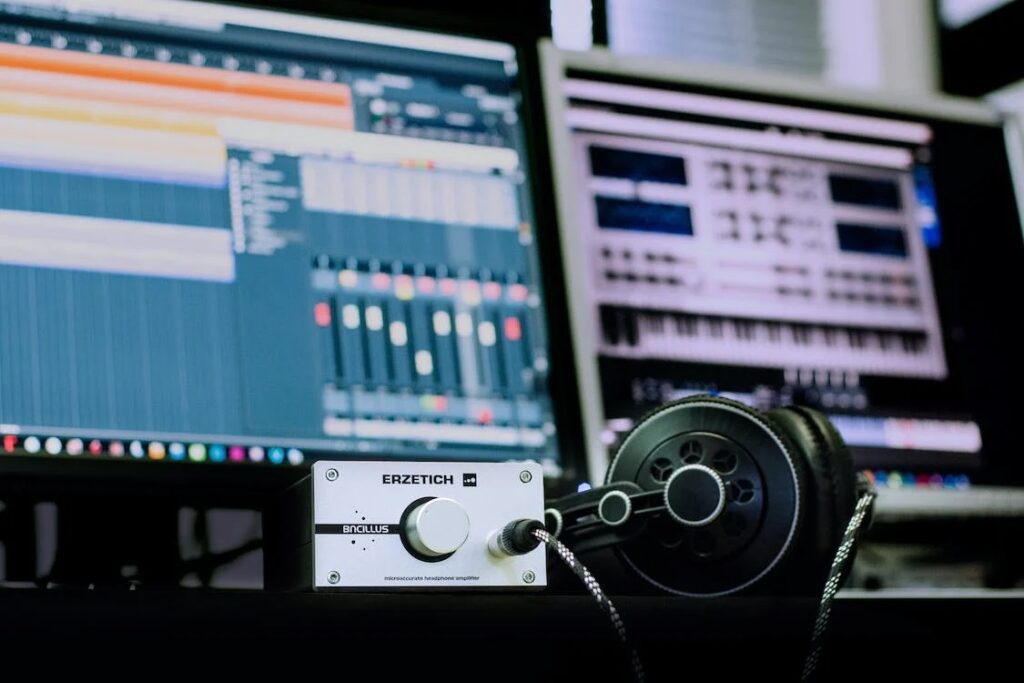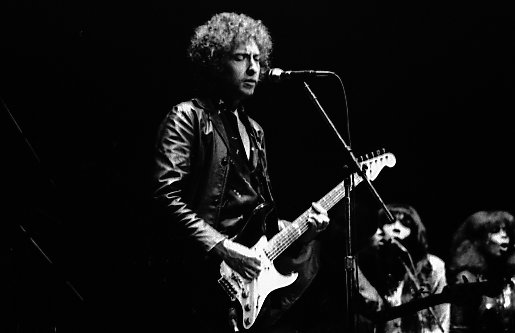Feature: Mastering the Mix: Best Degrees for Aspiring Music Producers
5 min read
The journey to becoming a master music producer is as complex and nuanced as the music they aspire to create. It’s an art that seamlessly blends creativity with technical prowess, and for many, it begins with the right education. Choosing the right college degree program can lay down the rhythmic foundation for a successful career in music production. With so many schools offering programs in music technology, sound engineering, and digital music production, finding the right fit requires a harmony of passion, talent, and academic rigor.
For those embarking on this creative quest, balancing college assignments, homework, and studio time is part of the learning curve. Support systems and domyessay.com essay writers can be invaluable for students who need to manage their coursework while honing their craft in the studio. The right educational environment not only fosters musical growth but also academic excellence.
Selecting the Right Degree for Music Production
Bachelor of Music in Music Production
A Bachelor of Music in Music Production is a coveted credential for those aiming to make it big as music producers. Esteemed schools like Berklee College of Music equip students with an all-encompassing knowledge base in music theory, composition, and the intricacies of production. The syllabus is often rich and varied, covering key areas such as:
- Advanced audio engineering principles;
- In-depth mixing and mastering techniques;
- Comprehensive music business and management courses;
- Sound design and acoustics;
- Digital audio workstation proficiency.
Attending a renowned school like Berklee not only imparts formidable academic knowledge but also provides invaluable networking opportunities with movers and shakers in the music industry, setting a strong foundation for a thriving career.
Bachelor of Arts in Music and Technology
Another path for aspiring producers is the Bachelor of Arts in Music and Technology. Institutions like the California Institute of the Arts (CalArts) offer progressive programs that combine the study of music with an emphasis on digital technologies. Students engage in:
- Electroacoustic composition;
- Computer programming for music applications;
- Multimedia integration.
CalArts’ curriculum is designed to foster innovative thinking and equip students with the skills necessary to excel in diverse music production environments.
Bachelor of Science in Audio Production
For those fascinated by the technological facet of music, a Bachelor of Science in Audio Production is an excellent choice. Prestigious institutions like Middle Tennessee State University offer in-depth programs dedicated to the technical aspects of sound production. Students gain firsthand experience with state-of-the-art equipment and practices, covering areas such as:
- Advanced recording studio techniques;
- Comprehensive live sound production;
- In-depth post-production for film, television, and interactive media;
- Sound synthesis and MIDI technology.
The curriculum at MTSU not only prepares students for a multitude of positions within the music industry, ranging from studio engineers to live event sound experts, but also offers a broad perspective on the various applications of audio production.
Bachelor of Science in Sound Design
Exploring the intersection of art and technology, a Bachelor of Science in Sound Design, such as the program offered by Savannah College of Art and Design (SCAD), is tailored for those interested in the more creative aspects of sound. Students can expect to dive into:
- Aural aesthetics and the psychology of sound;
- Sound creation for various media, including gaming and film;
- Integration of visual media and soundscapes.
SCAD’s program nurtures a deep understanding of sound as a storytelling tool, producing graduates who are well-equipped for the cinematic, gaming, and interactive media industries.
Advancing Your Education
Master’s Degrees in Music Technology
For music producers seeking to elevate their craft, pursuing a Master’s degree in Music Technology is a strategic move. Prestigious programs, like the one at New York University, stretch the limits of what can be achieved with digital sound and multimedia. These advanced studies immerse students in:
- Complex signal processing techniques;
- Development of interactive music systems;
- Pioneering audio work for augmented and virtual realities;
- Algorithmic composition and machine learning in music.
NYU’s commitment to intertwining music with the latest technological advances primes graduates for leadership roles in the ever-advancing domain of music production.
Master of Fine Arts in Music Production
For example, the Academy of Art University offers a Master of Fine Arts in Music Production, noted for its emphasis on the artistic elements of the field. This degree emphasizes the creative side of music production, providing an artistic framework for students to:
- Master sophisticated production techniques;
- Delve into the creative process of music making;
- Learn the intricacies of artist and repertoire development.
The program’s curriculum aims to craft well-rounded artists who can navigate the commercial, creative, and technical demands of the music industry.
Online Degree Programs
In an era where digital flexibility is paramount, online degree programs offer an accessible route for many students. Full Sail University’s online Bachelor of Science in Music Production is one such program that accommodates a variety of schedules, allowing for an individualized pace of study. The digital classroom includes lessons on:
- In-depth music theory and its practical applications;
- Advanced composition techniques;
- Strategic marketing within the music industry;
- Entrepreneurship and project management for producers.
Full Sail’s online platform is particularly beneficial for students who are concurrently engaged in internships, part-time jobs or who simply require a more adaptable learning structure.
Conclusion
In the crescendo of their educational journey, aspiring music producers must harmonize their passion with the technical skills acquired through a well-chosen college program. As they transition from the academic world to the professional arena, the experience and knowledge gained from these programs prove to be invaluable assets. Whether through traditional classrooms or online platforms, the best degree for an aspiring music producer is one that resonates with their career goals and amplifies their unique sound. For support along the way, students can rely on resources like the best paper writing service to keep their academic endeavors in tune while they focus on mastering the mix.
Navigating the academic world as a music producer requires both creativity and practicality. By choosing a program that offers a strong foundation in both the art and the science of music, students can ensure they’re well-equipped to make their mark in the music industry.
::: RenownedForSound.com’s Editor and Founder –
Interviewing and reviewing the best in new music and globally recognized artists is his passion.
Over the years he has been lucky enough to review thousands of music releases and concerts and interview artists ranging from top selling superstars like 27-time Grammy Award winner Alison Krauss, Boyz II Men, Roxette, Cyndi Lauper, Lisa Loeb and iconic Eagles front man/songwriter, Glenn Frey through to more recent successes including Newton Faulkner, Janelle Monae and Caro Emerald.
Brendon manages and coordinates the amazing team of writers on RenownedForSound.com who are based in the UK, the U.S and Australia.



